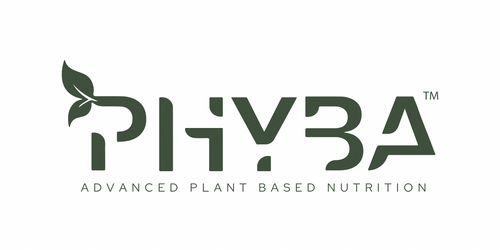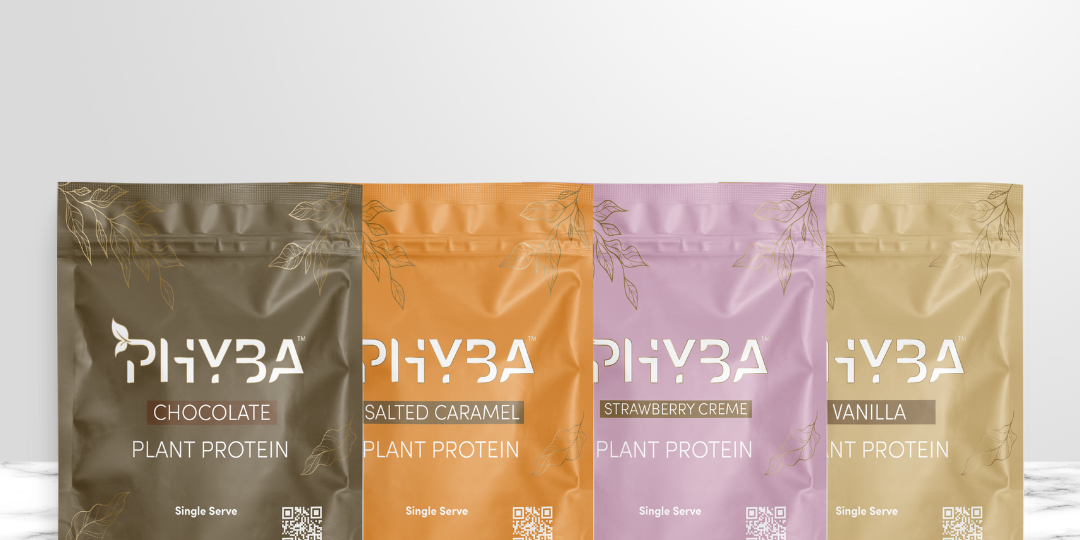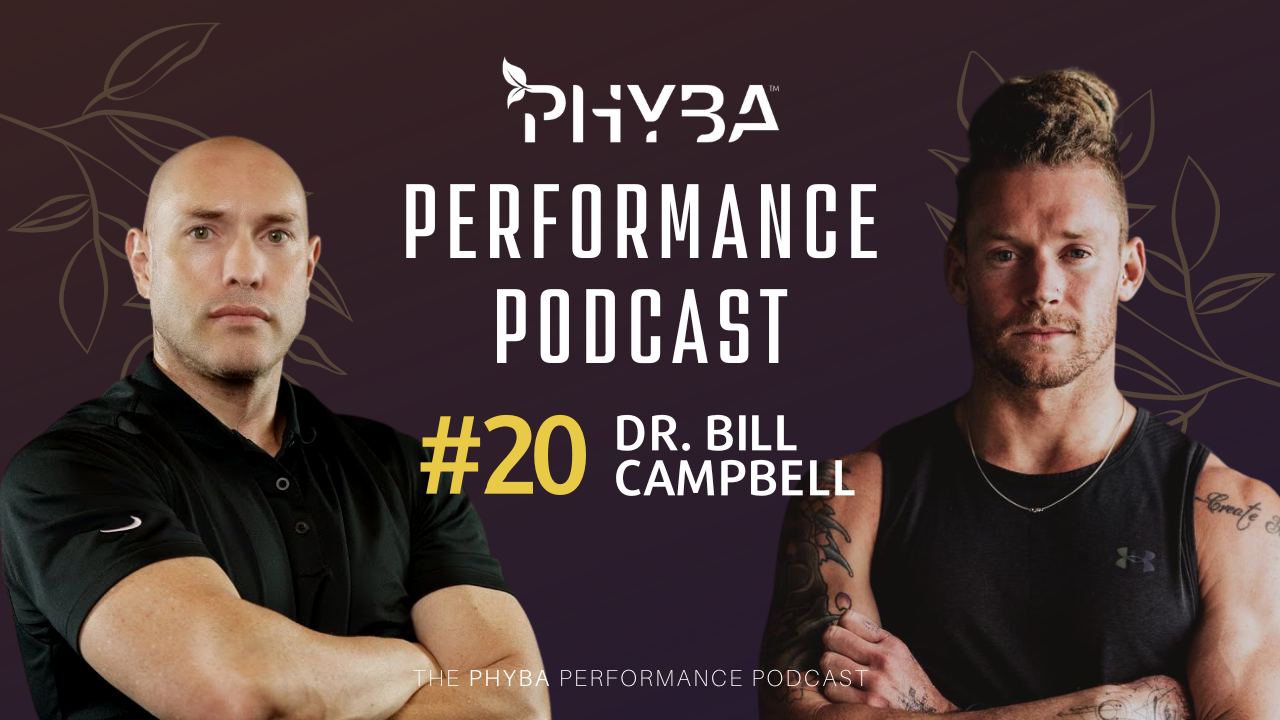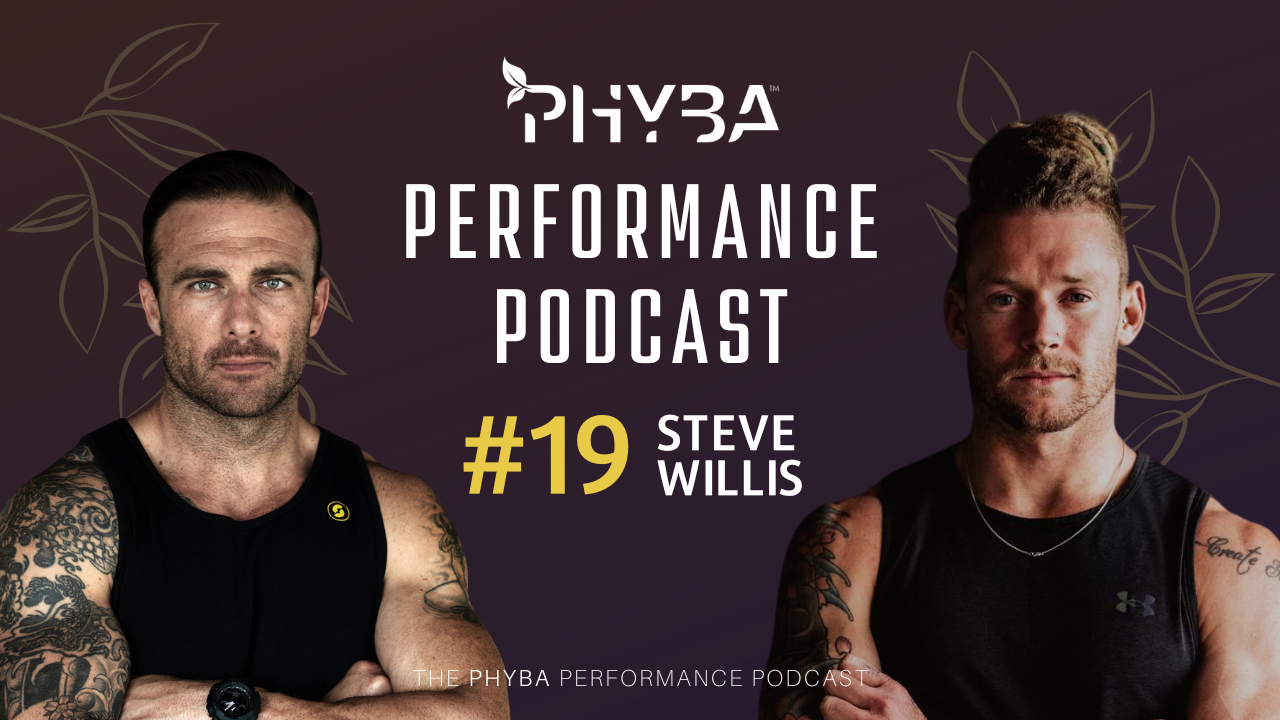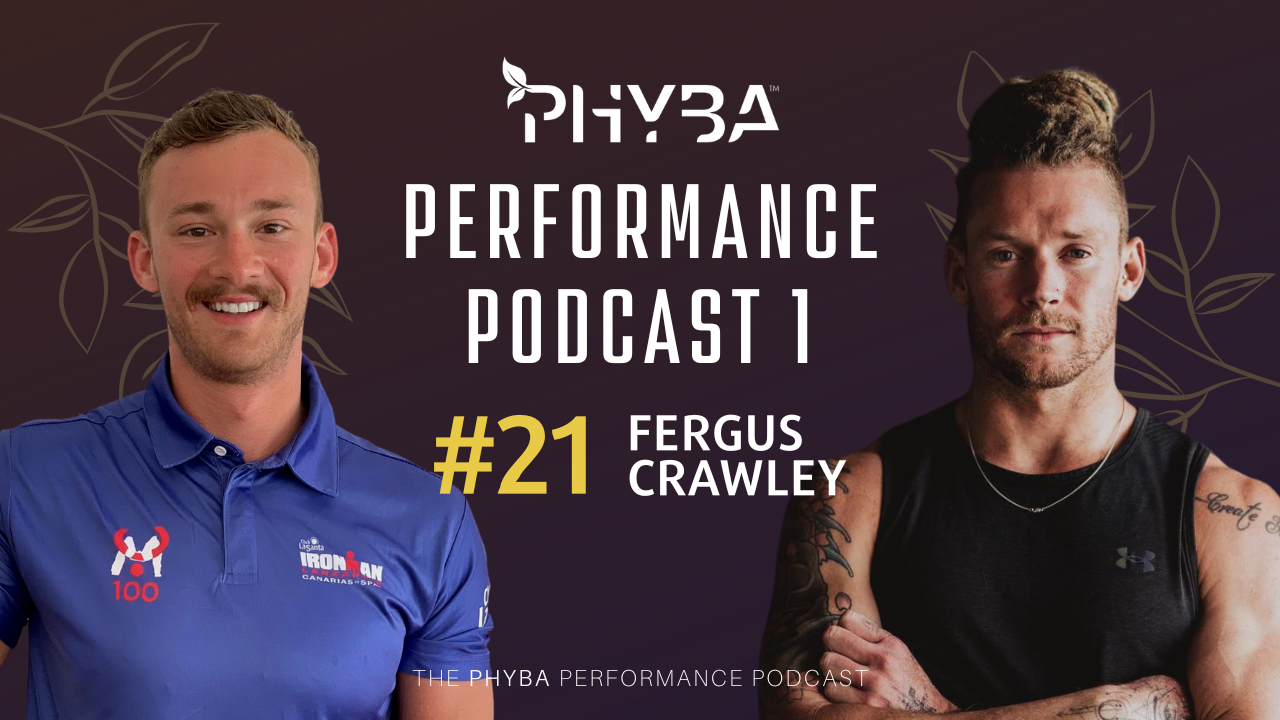Episode Summary:
In this episode, the boys sit down with Dr. Bill Campbell, pHD, a preeminent researcher in the field of nutrition and dietetics.
Dr. Campbell is on a mission to help dispel common myths around nutrition and resistance training so that his clients, and the larger community he impacts, doesn’t waste time on diets or regimens that don’t work, and rather… educates themselves on science-based interventions for health and optimization.
In this episode, Dr. Campbell takes the time to detail the impact of protein on musculoskeletal health, training performance, and recovery. Furthermore, he offers guidelines on how much protein to eat, and when, in order to help achieve goals for performance and body fat reduction.
To learn more about the copious research and public education Dr. Campbell offers for his community, check out his website and social media pages below:
Website: www.billcampbellphd.com
Instagram: https://www.billcampbellphd.com/
Episode Timestamp:
0:00 to 2:00: Podcast Intro
2:00 to 3:30: Protein As An Adaptive Nutrient, Exercise Stimulus
3:30 to 6:00: Protein Considerations For Power vs. Endurance
6:00 to 12:30: Considerations for Body Fat Reduction, Protein Timing
12:30 to 14:30: Best Protein Sources, Leucine
14:30 to 19:30: Overfeeding Protein, Body Fat Reduction
19:30 to 21:30: Adverse Effects of Protein Overconsumption
21:30 to 25:45: Thermic Effect of Food, Caloric Expenditure from Exercise
25:45 to 30:30: Creatine Benefits, Creatine Kinase
30:30 to 31:38: Podcast Outro
Guest Bio:
Matt Legge: Matt Legge is a world-class naturopath and formulation expert. He brings more than 20 years of clinical experience as a Naturopath, Medical Herbalist, and nutritional medicine and food therapist to his work with Phyba. Matt has served as the Director of Innovation for ATP Science, responsible for developing new product formulations, new ingredients and further advancing the science and education behind natural health and wellness systems. He is also an expert in performance management for elite athletes and everyday athletes.
James Newbury: James Newbury is world-class athlete and entrepreneur. James’ extensive experience as a 4X Crossfit Games Athlete, former semi professional rugby player for the Queensland and Sydney Rugby Leagues, and life-long fitness enthusiast have brought him here to lead a plant-based revolution in the field of health and performance… as the founder of Phyba!
Dr. Bill Campbell: Dr. Campbell is an Associate Professor in the School of Physical Education and Exercise Science at the University of South Florida. His master’s and doctoral degrees were earned at Baylor University while serving as the Coordinator of the Exercise and Biochemical Nutrition Laboratory.
He joined the faculty at USF in the Fall of 2007. Dr. Campbell is the Director of the Performance Nutrition and Exercise Metabolism Laboratory at the University of South Florida. His primary research interests include investigating the safety and efficacy of ergogenic aids/sports supplements, endocrine response to nutritional and exercise interventions, and mechanisms regulating skeletal muscle hypertrophy. He is a fellow of the International Society of Sports Nutrition where he also currently serves as the organization’s elected Secretary.
In addition, Dr. Campbell has published multiple manuscripts and book chapters relative to performance nutrition. Teaching responsibilities include both the undergraduate and graduate levels at the University of South Florida. Undergraduate courses include: Nutrition for Fitness and Sport, Biomechanics, and Individualized Fitness/Wellness Programming. Graduate courses include: Advanced Topics in Strength & Conditioning, Nutrition & Metabolism, Cardiovascular Physiology, and Neuromuscular Physiology.
Key Definitions:
Protein:Proteins are large biomolecules and macromolecules that comprise one or more long chains of amino acid residues.
Leucine:
Leucine is one of the 3 essential branched chain amino acids. These amino acids can be used by skeletal muscle to give energy during exercise.
Thermic Effect of Food:
The thermic effect of food (TEF) is the amount of energy it takes for your body to digest, absorb, and metabolise the food you eat.
Creatine:
Creatine is a naturally occurring non-protein compound and the primary constituent of phosphocreatine, which is used to regenerate ATP within the cell.
Creatine Kinase:
Creatine kinase (CK), formerly known as creatine phosphokinase, is an intracellular enzyme present in greatest amounts in skeletal muscle, myocardium, and brain; smaller amounts occur in other visceral tissues.
At Phyba, we're on a mission to help people achieve peak performance and optimal results through the power of plants. We're dedicated to providing pure, high-quality supplements made from real-food, plant-based ingredients, without harmful additives or artificial fillers. We believe that by harnessing the power of plants, we can unlock human potential and help individuals achieve their goals naturally. Our goal is to inspire and educate individuals on the benefits of a holistic lifestyle that prioritises self-care, nourishment, and sustainability.
